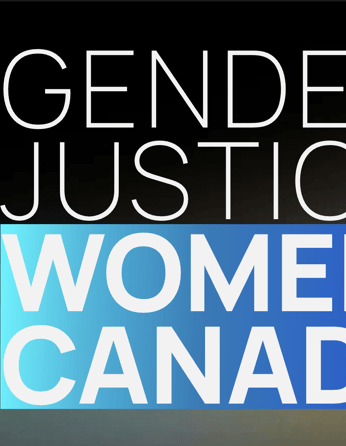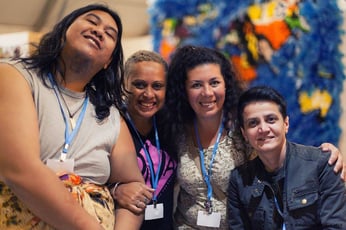
Policy Brief
Jun 8, 2025
The W7 is a G7 engagement group that provides recommendations to G7 leaders and officials. 63 feminist activists from 20 countries contribute their priorities and perspectives. WEDO Executive Director Bridget Burns co-chaired the W7 Working Group on Climate.
Ahead of the G7 2025 meeting in Canada, the W7, a G7 engagement group that provides recommendations to G7 leaders and officials, released the following call to action.
The G7 nations are critical actors in the fight against the climate crisis. Together, they represent over half of global GDP and over 20% of global greenhouse gas emissions, despite accounting for only 10% of the world’s population. More significantly, the G7 bears a disproportionate share of historical emissions, making it a primary contributor to global climate destabilization. Intensifying weather disasters are causing excessive deaths, suffering, displacement, and economic loss, deepening historic and ongoing global inequalities, with the most severe impacts falling on women, girls, children and youth, Indigenous Peoples, the elderly, subsistence farmers, and other marginalized groups, particularly in the Global South.
Despite long-standing pledges — from coal phase-outs to climate finance commitments — G7 countries remain far behind what is needed to deliver a just and equitable green transition. The climate emergency continues to escalate: 2024 marked the first year in which global temperatures exceeded 1.5°C above pre-industrial levels, making it the hottest year on record. While the climate crisis affects people worldwide on a daily basis, its impact is most severe in fragile and conflict-affected areas, exacerbating human suffering, humanitarian challenges, and pressure on ecosystems. It can also contribute to further tensions and insecurity.
Alarmingly, climate change is not a central item on the 2025 G7 agenda. This deprioritization reflects a broader erosion of climate leadership at a moment when it is urgently needed. Yet the issues on the agenda—wildfires, critical minerals, armed conflict, economic resilience, digital transition—are all climate-related issues. It is not possible to address these without reckoning with how the climate crisis intersects with and accelerates them.
To be effective, G7 climate leadership must be cross-cutting and grounded in gender justice. This policy brief provides a call to action to G7 leaders to tackle the climate emergency comprehensively, while centering a gender-just transition.
At a press conference held on June 10, the W7 presented its call to the G7 leaders:
Stay Informed
Receive updates on our progress, thinking, and strategies as we advocate for gender-just climate, environment, and economic policies around the world.
Resources


Support Our Work
Your donation provides us with the stable foundation we need to build the feminist future we’re working to realize.
Donate Today